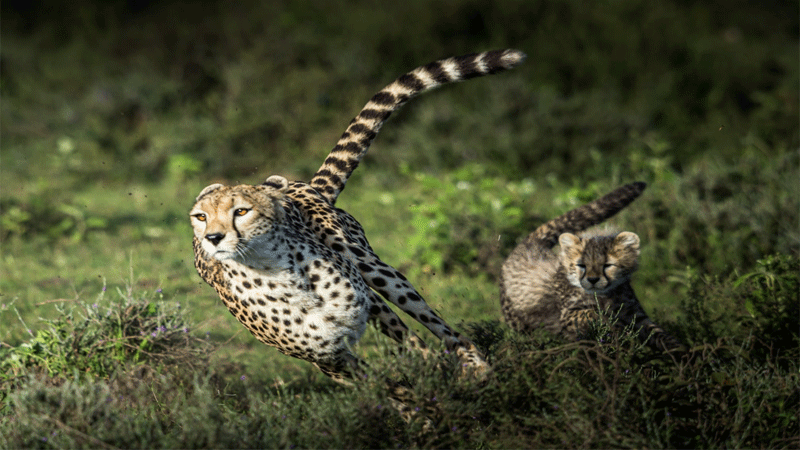A contract has been signed for the shipment of 12 cheetahs over the next ten years, with the first group arriving this month.

Conservationists have criticized the Indian government’s plan to relocate African cheetahs to India and release them into the wild, calling it “ecologically and scientifically flawed”. A contract has been signed for the shipment of 12 cheetahs over the next ten years, with the first group arriving this month.
Eight African cheetahs currently reside in India’s Kuno National Park (KNP), which is located in the Madhya Pradesh state in the centre of the country.
According to a statement released by the Indian government in the final week of January, “following the import of the 12 cheetahs in February, the plan is to translocate a further 12 annually for the next eight to 10 years.”
In September 2022, the first group of eight African cheetahs was airlifted from Namibia and released in the park, beginning the ambitious Cheetah Introduction Project (CIP) of the Indian government to reintroduce the big cats to India.
Asiatic cheetahs in India became extinct over seven decades ago, leading to a massive loss of biodiversity. S.P. Yadav, head of Project Tiger, believes it is our moral and ethical responsibility to bring back the cheetah, but conservationists are divided over the Indian government’s current plan to introduce African cheetahs.
In October, a group of wildlife scientists from India, South Africa, and other countries said that India’s current Action Plan for Introduction of Cheetah in India (APICI) was “ecologically unsound, costly, and may serve as a distraction rather than help global cheetah and other science-based conservation efforts.”
The CIP of the Indian government estimates that a maximum of 21 cheetahs can reside in the 748-square-kilometre KNP.
Wildlife biologist Ravi Chellam, one of the authors of the opinion piece, told VOA that the KNP is too small to host a viable population of the big cats, as the average cheetah density in the best of the habitats in Africa is 1 per 100 square kilometres. He is the CEO of Metastring Foundation, an organization working in the field of environment and public health.
Michael G.L. Mills, a large carnivore specialist based in South Africa, agreed with Chellam that the KNP is not appropriate for India’s cheetah action plan.
According to Mills, “the range quality is also important for maintaining a viable cheetah population, with a need for open or semi-open habitat with enough suitable wild prey, free from anthropogenic (caused by humans) pressure, and free-ranging dogs.”
Mills argued that Kuno National Park, which is unfenced, harbors 500 feral cattle and is surrounded by a forested landscape with 169 human settlements, is not the size and quality to permit self-sustaining and genetically viable cheetah populations.
He also warned that adopting such a speculative and unscientific approach could lead to human-cheetah conflicts, death of the introduced cheetahs, and undermine other science-based species recovery efforts. However, experts involved in India’s cheetah programme disagree.
Yadvendradev Jhala, dean of the Wildlife Institute of India and lead scientist of the CIP, disagrees with those who are critical of the APICI action plan. He believes that the cheetah reintroduction project is about restoring functional ecosystems, and that the real challenge begins when the animals are released as free-ranging animals.
The eight cheetahs are still in fenced enclosures at the KNP to help them acclimatize to their new home, and their survival will depend on how safe the national park and its surroundings are from poachers and their snares.
Conservationist M.K. Ranjitsinh, a member of a court-appointed committee advising the government on the cheetah introduction project, said that apart from the KNP, three other sites being readied where African cheetahs would be introduced have sufficient prey bases to support a certain number of cheetahs. Scientists have found that these sites have the potential to sustain a population of 21 cheetahs over the next 15 years.
Chellam, a conservationist, said: “There simply aren’t enough cheetahs to support a viable population. “There is no doubt that the introduced African cheetahs will play a larger conservation role in India as a result.”